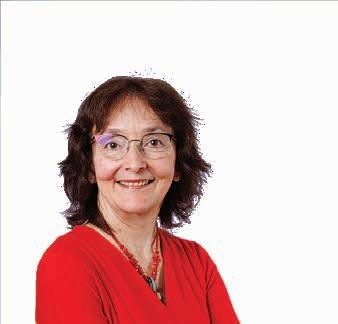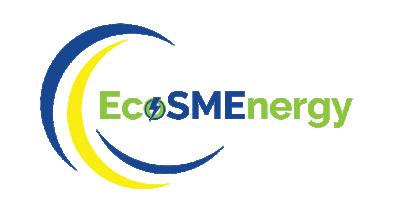Backing European SMEs


Small and medium-sized enterprises (SMEs) are often at the forefront of technical innovation, yet they typically don’t have the same resources as larger companies to commit to improving energy efficiency. The team behind the EcoSMEnergy project aim to provide European SMEs with a helping hand in this area and boost competitiveness, as Birgit Arens explains.
very different behaviour between different companies and sectors,” says Arens. The next phase of the project will be to conduct detailed energy audits of individual companies, which will help them identify areas where efficiency could be improved. “These energy audits will allow companies to see where they use a lot of energy, and where savings could be made,” explains Arens. “The companies will be given recommendations for improving their energy efficiency and the measures could range from changing lighting to changing the ventilation system, installing solar panels, or other process related aspects.”
“Often small and medium-sized enterprises are absorbed in their day-to-day business, in developing new ideas and products. Energy efficiency is not a core preoccupation.”
Many new ideas and technologies emerge from small and medium-sized enterprises (SMEs), defined as those with less than 250 employees, yet this relatively small size means they have limited capacity to deal with operational challenges. Typically SMEs do not have the same resources as large corporations to commit to improving energy efficiency for example, which can leave them at a competitive disadvantage. “Often they are absorbed in their day-to-day business, in developing new ideas and products. Energy efficiency is not a core preoccupation,” explains Birgit Arens, Senior Project Manager at Eurochambres, the Association of European Chambers of Commerce and Industry. As coordinator of the EU-funded EcoSMEnergy project, Arens aims to help European SMEs across a range of sectors improve their energy efficiency performance. “We are looking into manufacturing companies of Statistical Classification of Economic Activities in the European Community (NACE) sectors C20-C22, and C25-C29. These range from chemicals and pharmaceuticals to the production of motor vehicles and spare parts,” she outlines.
Energy efficiency
These industries are typically characterised by a high level of energy usage, which forms a big part of their running costs, an issue the EcoSMEnergy team are working to address. A key first step in the project was to conduct an energy assessment with a limited sample of SMEs across six European countries, looking at their current approach to energy efficiency, which revealed wide variations. “We saw that there is no uniform picture. We saw
The project team are also developing different tools and methodologies for SMEs to identify ways to improve energy efficiency, while at the same time minimising the administrative burden. A Voluntary Code of Conduct (VCC) is under development, which Arens hopes will encourage wider change amongst SMEs. “We want companies to use the VCC and to subscribe to the energy management systems we are setting up, while we also provide training on how to use these tools. Besides, we provide different online resources that offer companies information on how to finance their energy efficiency efforts,” she outlines. This is part of the wider goal of boosting the competitiveness of European industry, which is a major priority for Eurochambres as a business organisation. “Our work in EcoSMEnergy is about helping European businesses remain competitive, while at the same time taking into account the overarching priorities of shifting towards cleaner industry and greening the economy,” continues Arens.
These tools and methodologies are replicable and scaleable, so could be adopted by more SMEs beyond the conclusion of the project, contributing to the goal of achieving climate neutrality by 2050. A dedicated energy management platform has been developed, which will also continue running in future, part of the project’s long-term legacy. “We really foresee a long-term impact,” stresses Arens. The project team have long experience of working with SMEs, and Arens says they share a strong commitment to helping companies improve energy efficiency. “We aim to really give companies a helping hand in terms of information, recommendations, and practical tools,” she says.
EcoSMEnergy
Co-funded funded by the EU LIFE Programme, Grant agreement n° 101166959 LIFE23-CET
European Coordinator, Birgit Arens
Eurochambres
Avenue des Arts 19 A/D 1000 Brussels
T: +32 (0)2 282 0857
E: ecosmenergy@eurochambres.eu
W: https://www.ecosmenergy.eu

Birgit Arens Birgit has been working at Eurochambres for over 20 years, assuming different functions, first in the policy and then in the project department, building a solid EU project management experience. She currently manages projects related to skills development, VET in particular, energy efficiency and the integration of migrants in the labour market.



